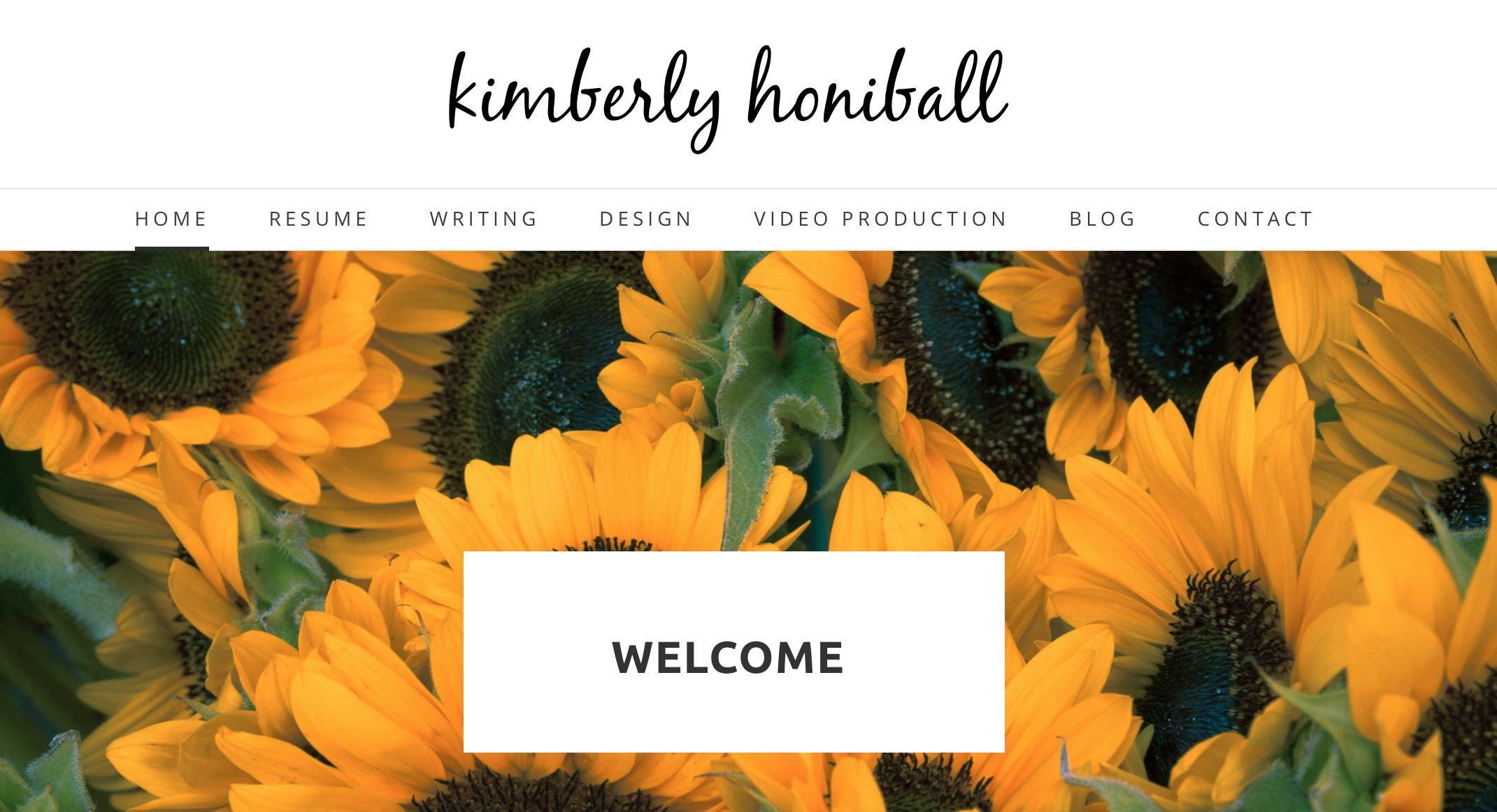Looking for a job can be one of the most exciting, or stressful, times of your life depending on how you look at it.
I recently graduated from Elon University with a Bachelor of Arts in Strategic Communications and minors in Business Administration, Literature, and Professional Sales. My degree did not get me a job, but working my butt off applying to companies, saying “yes” to every opportunity that came my way, and asking friends and family for help when I needed it got me a full-time job in my dream city fewer than four months after I walked across the stage.
Whether you’re still in college looking for the perfect post-grad/internship opportunity, spending some time at home applying for jobs, or looking for a part-time job while you hit the books, I hope these tips help you land your dream job, or at least get a little closer to earning your own money.
1. Figure out what you will bring to the company if they chose to hire you. Anywhere that you are interviewing will ask you what you will bring to the company, so make sure you understand how valuable you are before you’re staring doe-eyed at your interviewer trying to come up with a way to humble brag about how awesome you are. I recommend spending at least an hour highlighting your strengths, analyzing the role you play in group projects, and determining where you want to be in ten years. It’s important to know your strengths, as well as your weaknesses, when you are interviewing. If you can’t say why you will be an asset to the company, what makes them want to hire you?
 2. Pick a place. One of the biggest obstacles I encountered when embarking on my job search was the overwhelming amount of opportunities — which is an incredible obstacle to encounter. Typically, it won’t be hard to find a place to work (especially in the public relations field), so I found it was easier to apply to jobs when I picked a few key places I wouldn’t mind working (I stuck to bigger cities that I had a personal connection to, but it can be anywhere). This helps you narrow down your options and refrain from being overwhelmed by the thousands of companies you could be applying to. It’s also a good idea to determine what kind of company you want to be working for. For example, do you want to work for a big corporation, non-profit, boutique company, etc. It’s always easy to expand your list, so try to narrow it down as much as possible from the start.
2. Pick a place. One of the biggest obstacles I encountered when embarking on my job search was the overwhelming amount of opportunities — which is an incredible obstacle to encounter. Typically, it won’t be hard to find a place to work (especially in the public relations field), so I found it was easier to apply to jobs when I picked a few key places I wouldn’t mind working (I stuck to bigger cities that I had a personal connection to, but it can be anywhere). This helps you narrow down your options and refrain from being overwhelmed by the thousands of companies you could be applying to. It’s also a good idea to determine what kind of company you want to be working for. For example, do you want to work for a big corporation, non-profit, boutique company, etc. It’s always easy to expand your list, so try to narrow it down as much as possible from the start.
3. Create a unique resume/cover letter and tailor it for each job. I know you’ve heard it a million times, but I swear it’s true. You have to have something that makes you stand out to people/machines scanning your resume, and a good place to start is with a unique design and color. This is especially important if you are going into a creative field. Try to add elements like lines, icons, and different fonts when you can. Also, make sure you tailor the information on your resume to each job your are applying for. If you’ve had seven amazing jobs, don’t list every job; instead, put your most relevant experiences and highlight other skills and experiences that will help you stand out as the best candidate for the position.
 4. Curate an online personality for yourself. I rolled my eyes when I was told to create an online portfolio in my internship class the summer before my senior year, but it’s actually worth it —TRUST ME. Again, this is specifically important if you are going into a creative field because it lets you showcase your work. For example, I have writing samples and video productions on my resume to showcase my experience with public relations and journalism. This helps employers see what you can bring to the table. Check out my web portfolio at www.kimberlyhoniball.weebly.com. Additionally, utilize your social media to build your personal brand in a professional manner. Twitter is great for this because the news/stories you are sharing with your followers showcases your interests to employers. Blogging is also a great way to develop your online personality, which makes it easier for an employer to feel like they know more about you than just what your resume says. Just make sure to keep it professional.
4. Curate an online personality for yourself. I rolled my eyes when I was told to create an online portfolio in my internship class the summer before my senior year, but it’s actually worth it —TRUST ME. Again, this is specifically important if you are going into a creative field because it lets you showcase your work. For example, I have writing samples and video productions on my resume to showcase my experience with public relations and journalism. This helps employers see what you can bring to the table. Check out my web portfolio at www.kimberlyhoniball.weebly.com. Additionally, utilize your social media to build your personal brand in a professional manner. Twitter is great for this because the news/stories you are sharing with your followers showcases your interests to employers. Blogging is also a great way to develop your online personality, which makes it easier for an employer to feel like they know more about you than just what your resume says. Just make sure to keep it professional.
5. Don’t be afraid to use your resources. If you’re in college, it’s highly likely that your school has a professional development center. Typically, those centers have job listings posted with companies that the school has a relationship with. USE IT. This helps in narrowing your job search, and if your university has a connection with the company, it is more likely to look at your resume. Also, check out job search engines likes Monster and Indeed.com. You can tailor your search or upload your resume for a broader net. This is going to be a lot less personal, and you may get random job requests, but it’s a pretty effective method to finding a job if you’re desperate (which is completely okay!).
6. Get certified. I can’t tell you how many times a potential employer asked me if I had any additional certifications besides my bachelors degree. If you’ve got spare time at an internship, need to fill time at your desk job, or are looking to expand your skill set, I highly recommend getting certified in something that will make your resume stand out. Classes and work experience are incredibly important, but you can’t learn everything sitting at a desk. Teach yourself how to program or get Google Analytics certified. It can never hurt to be over-qualified.
 7. Keep it organized. If you’re anything like me, and every friend I know, you’re probably going to be applying to a lot of places (sometimes hundreds). You also probably won’t hear back for weeks from some places, so I highly recommend keeping a spreadsheet of all the companies you apply to. Keep track of information like when you sent in your application, follow up details, whether it is a full-time position or an internship, if there are other openings at the company, if you have any connections with the company, the date you interviewed, who you interviewed with, and any other pertinent information to make sure you remember your application and what the company stands for. After 70 applications, each company is going to start to look the same, so this will ensure that when you do get that interview, you remember what you actually applied for.
7. Keep it organized. If you’re anything like me, and every friend I know, you’re probably going to be applying to a lot of places (sometimes hundreds). You also probably won’t hear back for weeks from some places, so I highly recommend keeping a spreadsheet of all the companies you apply to. Keep track of information like when you sent in your application, follow up details, whether it is a full-time position or an internship, if there are other openings at the company, if you have any connections with the company, the date you interviewed, who you interviewed with, and any other pertinent information to make sure you remember your application and what the company stands for. After 70 applications, each company is going to start to look the same, so this will ensure that when you do get that interview, you remember what you actually applied for.
8. Make connections everywhere you go and use them. Very few people ever intend to use someone to their advantage, but when it comes to getting a job, use every connection you have. Sometimes it can feel weird saying, “Yeah, my mom helped me get the job,” but it’s how a lot of people get their first start, so don’t be embarrassed. I found out about my current job from my brother, and I know people who target certain companies and see if they know anyone working there that can get them in the door. People want to help you get a job, so let them. Maybe it isn’t exactly the industry or job title you were expecting, but it might be a stepping stone to something better. Also, keep your eye out for networking connections anywhere you go, That was the biggest lesson I learned while in college — I was home (in Florida) for spring break and had an interview the following week with the company I ended up interning with over the summer. My mom wanted me to come in to school (she’s a teacher) to meet one of her friends that actually lived up near my school (in North Carolina). Her husband actually ended up working for the company I was interviewing with and put in a good word for me. You seriously never know when you are going to meet someone that is going to change your life.
9. Work part time/free lance to build your resume. It’s no secret that I didn’t have a full-time job by the time I graduated in May — a lot of my friends didn’t actually. But I did have a freelance opportunity to work with a start-up in my hometown. The job wasn’t full time, but it kept me busy and helped me build my resume while I was applying to other jobs. Every opportunity is a good opportunity if you look at it with fresh eyes, and you never know what you are going to learn in the process.
 10. Follow-up. My final lesson, and probably one you have also heard a thousand times, is to always send a thank you after an interview. It keeps you on the interviewer’s mind and lets them know that, no matter what happens, you enjoyed your experience with the company. This can come in handy if you’re applying to work with the company at a later date as well. Additionally, don’t be afraid to follow-up with companies after submitting your resume. I was traveling to Nashville for an interview with a company when I actually emailed another company I hadn’t heard back from telling them I would be in town. They managed to squeeze me into their schedules, and I actually work for them now!
10. Follow-up. My final lesson, and probably one you have also heard a thousand times, is to always send a thank you after an interview. It keeps you on the interviewer’s mind and lets them know that, no matter what happens, you enjoyed your experience with the company. This can come in handy if you’re applying to work with the company at a later date as well. Additionally, don’t be afraid to follow-up with companies after submitting your resume. I was traveling to Nashville for an interview with a company when I actually emailed another company I hadn’t heard back from telling them I would be in town. They managed to squeeze me into their schedules, and I actually work for them now!
Sometimes the job search can seem endless, but there is light at the end of the tunnel, I promise. Stick to your guns, understand your worth, and always work on improving yourself and any company will be lucky to hire you.
Happy adulting,
Kimberly
